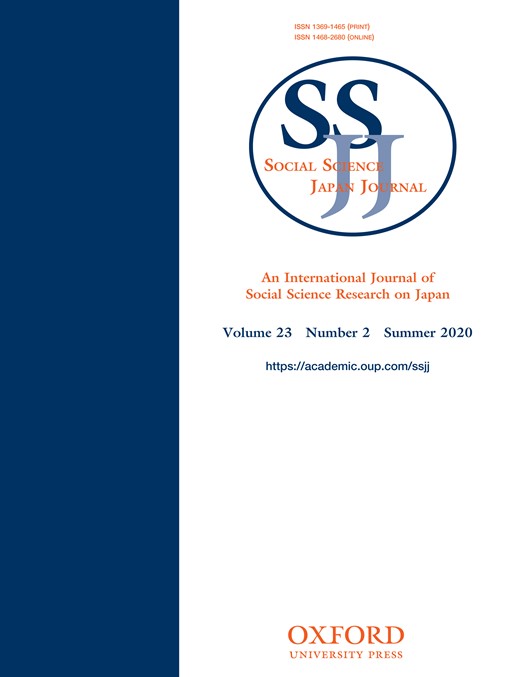-
Views
-
Cite
Cite
Ulv HANSSEN, National Identity and Japanese Revisionism: Abe Shinzō’s Vision of a Beautiful Japan and Its Limits, Social Science Japan Journal, Volume 23, Issue 2, Summer 2020, Pages 325–327, https://doi.org/10.1093/ssjj/jyaa016
Close - Share Icon Share
Extract
‘Is Japan changing?’ Those are the first words of Michal Kolmaš’ book National Identity and Japanese Revisionism: Abe Shinzō’s Vision of a Beautiful Japan and Its Limits. By posing this question, Kolmaš steps right into a debate that has divided the community of Japan scholars since Abe’s comeback as Japan’s prime minister in 2012. On one side of the debate, there are those who argue that the changes in Japan’s domestic, foreign and security policies under Abe are innocuous and merely represent a slow and incremental departure from the policies adhered to by past governments. According to this view, the pacifism that has characterized postwar Japan’s security posture is still very much alive. However, on the other side of the debate is the argument that Abe’s policies constitute a radical and dangerous departure from past practices. According to this view, Japan’s postwar pacifism is dramatically weakening—or even dead. Kolmaš correctly points out that the former group tends to be US-based and normatively positive toward changing Japanese security policy, while the latter group is mostly Europe-based and normatively negative to such a change.




